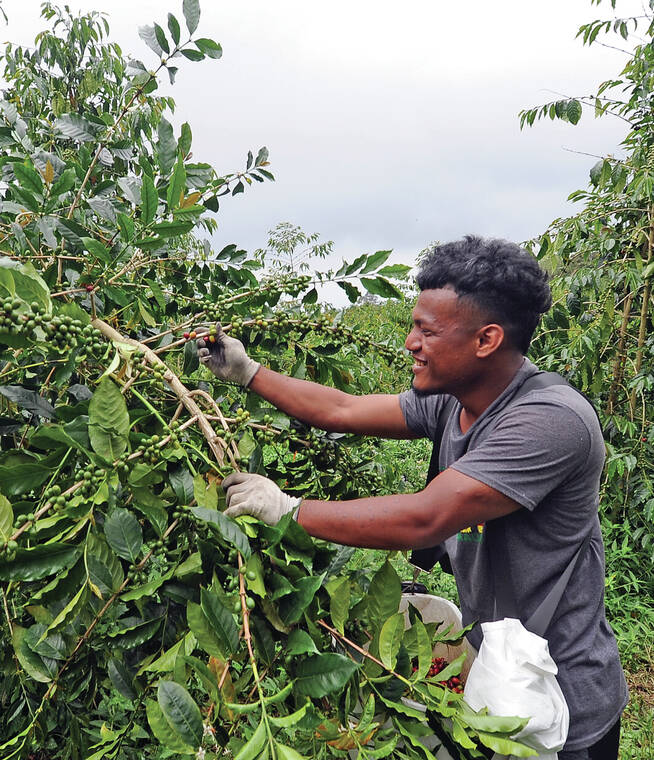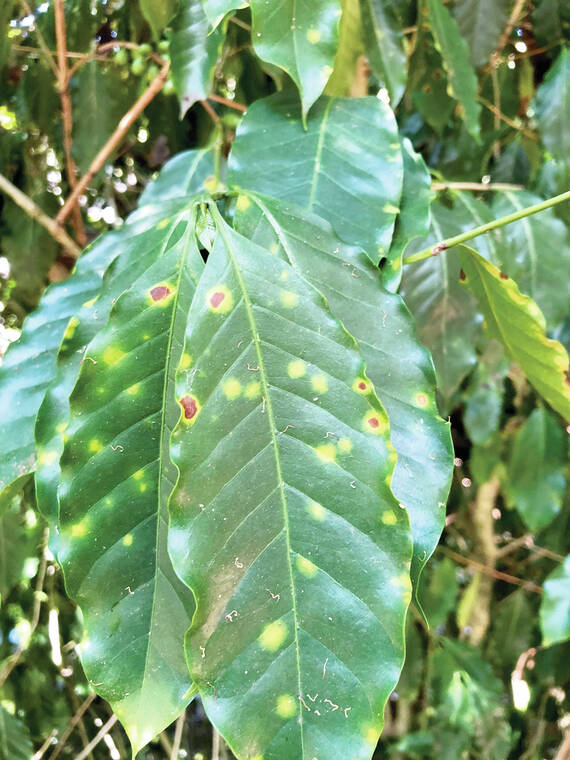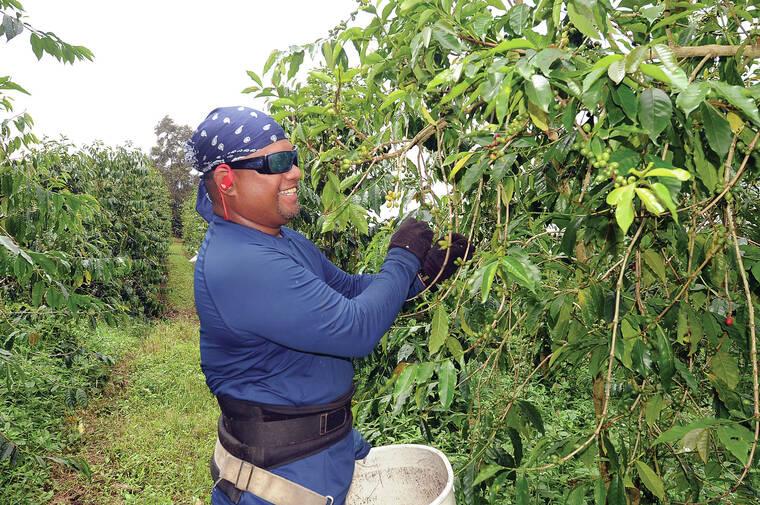Hawaii’s congressional delegation recently introduced bicameral legislation to allow research funding to address all current and emerging threats to the coffee and macadamia nut industries
The Coffee Plant Health Initiative Amendments Act (CPHIAA) and Macadamia Tree Health Initiative Amendments Act (MTHIAA) would remove existing restrictions on the limited scope of research and grant funding for coffee and macadamia, according to introducers U.S. Sens. Mazie Hirono and Brian Schatz and Reps. Ed Case and Kai Kahele.
As the law is currently written, funding can only be allocated for research related to the macadamia felted coccid (MFC) and coffee berry borer. The acts introduced Wednesday would expand research to address all macadamia tree and coffee plant pests and weeds, including coffee leaf rust, the latest threat to the coffee industry in Hawaii, and future threats yet to be identified.
“As our agricultural community continuously fights new invasive pests, resources provided by these two bills would be instrumental in protecting two of Hawaii’s signature crops: coffee and macadamia nuts,” Hirono said in a prepared statement from the delegation. “I look forward to working with my delegation colleagues on these bills so that our producers are equipped to face current and future threats to these crops.”
Among the current threats to the coffee industry is coffee leaf rust, which was first detected on Hawaii Island and Maui in October 2020 and has since been identified on every major island in the state. According to agriculture officials, the devastating coffee pathogen, first discovered in Sri Lanka in 1869, can cause severe defoliation of coffee plants resulting in greatly reduced photosynthetic capacity.
Depending on the prevalence of coffee leaf rust in a given year, both vegetative and berry growth can be greatly reduced. Long-term impacts include dieback that can impact the next crop, with estimated losses ranging from 30% to 80%.
The annual combined farmgate value (market value minus selling cost) of macadamia nut and coffee is over $100 million in the United States, the delegation said.
According to the U.S. Department of Agriculture National Agricultural Statistics Service, Hawaii’s coffee industry was valued at $55.89 million in 2020-21, up from $54.29 the year prior. In 2020-21, utilized production was at 26.5 million pounds.
Meanwhile, macadamia nuts were valued at $48.98 million in 2020, up a sliver from the year before at $48.84 million. Hawaii’s utilized production of macadamia nuts totaled 39.5 million pounds in 2020.
“Healthy and vibrant mac-adamia and coffee industries are pivotal to streng-thening Hawaii’s agricultural community. These amendments help our farmers protect their crops and livelihoods against any emerging threats,” said Kahele. “I’m proud to have the support of the entire Hawaii Delegation to help these industries rebound, grow, and better compete in a global market.”
Macadamia nut and coffee farmers across Hawaii and the United States supported the move.
The Hawaii Macadamia Nut Association said the MTHIAA would strengthen the future of Hawaii agriculture as the macadamia industry faces new and emerging threats to macadamia nut farms.
“This act will ensure our farmers have science-based tools to combat these threats and improve the resiliency and productivity of their farms. With expanded funding for research, the macadamia nut industry can increase the number of macadamia farmers and farms that contribute positively to the local economy and the beautiful environment that makes Hawaii so special,” said Nathan Trump, president of the association.
Chris Manfredi, a Ka‘u coffee farmer and president of the Hawaii Coffee Association, commended the bill taking into account future threats, not just those impacting the industry today, noting the measure will “greatly contribute to the survival of one of Hawaii’s most important crops.”
“Coffee is a vital part of most people’s day, but we rarely spend time thinking about the plant behind the bean. This bill ensures that Hawaii’s small growers are able to access research and technology for the new challenges that arise on their farms,” said Suzanne Shriner, a Kona coffee farmer and administrator for the Synergistic Hawaii Agriculture Council. “Hawaii’s Kona coffee is prized as one of the world’s best, however, new threats such as Leaf Rust and a changing climate have led to gaps in our research and barriers in the marketplace. We support this initiative, and recognize that it will provide benefits to all who enjoy a good cup of coffee.”
Malia Bolton Hind, of Kona Coffee and Tea Company, said the industry needs to be protected.
“This is a step to expand the language,” she said. “We need to keep the research going so we are supporting the industry especially not knowing what the future holds. We do have the rust here now, but we don’t know what is on the horizon.”











